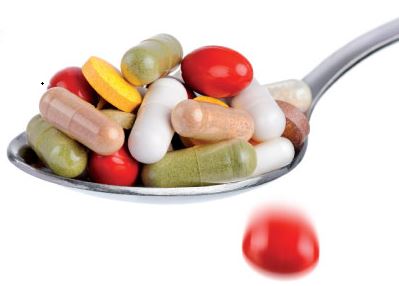Buyer beware – why you should be careful using natural health products

By June Martin, RD, CDE
Vitamins, minerals and herbal supplements, also called “natural health products” are big business in Canada. The words “natural” and “health” sound good, but are these products really good for you?
Surprisingly to some, there is little scientific evidence to support the routine use of supplements – and in fact, a 2013 study from the University of Guelph shows some pretty shocking data about natural health products.
Many products do not contain what they claim
Researchers looked at 44 different herbal products and used DNA barcoding to authenticate these products. What did they find? Over half of the products contained DNA barcodes from plants that weren’t listed on the labels, and many products contained contaminants or substitutions. The authors identified some of these contaminants as being potentially harmful or dangerous to consumers.
And 30 of the 44 products used product substitution (that means that the main herbal ingredient was substituted by a different product). Unfortunately for us, the researchers didn’t identify if the products were Canadian or if they had NPNs (natural product numbers).
Special caution for kidney patients
Kidney patients have even more reason than most to be cautious when considering herbal supplements. There are very few studies looking at herbal products in people with chronic kidney disease (CKD). What might be harmless for someone with healthy kidneys can lead to a build-up of waste products in a CKD patient, and some herbs may be toxic to the kidneys.
Lack of regulation in Canada
Unfortunately, herbal products in Canada are not well regulated, meaning that the safety, purity and effectiveness of these products are therefore questionable.
Another big concern with supplements is that they may interact with prescription medications. This is especially dangerous for transplant recipients. And even if you are taking an herbal product that is known to be safe in kidney disease, you have no way of knowing if your product actually contains what it is supposed to!
Talk to your healthcare team first
Based on this, I generally recommend that people living with CKD avoid herbal products. But if you decide to take an herbal supplement anyway, make sure to discuss it with your healthcare team – your doctor, dietitian and pharmacist – before you make a purchase. Don’t buy a product unless it has a NPN number. And for vitamins – read the labels carefully! Often, products contain amounts of potassium and phosphorus that can really add up.
The National Kidney Foundation in the US has a great kidney-specific resource on herbal products: http://www.kidney.org/atoz/content/herbalsupp.cfm
Reference:
Newmaster SG et al. DNA barcoding detects contamination and substitution in North American health products. BMC Medicine 2013;11:222.
Read full article online at
http://www.biomedcentral.com/1741-7015/11/222

